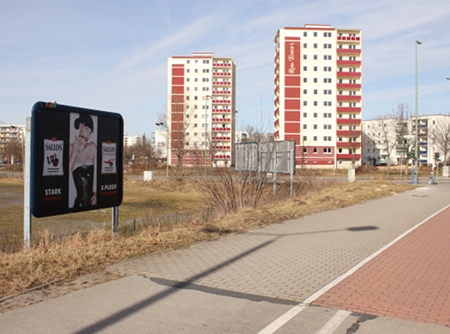SPACED OUT
Thursday, August 19th, 2021Tim has made a new trailer for the Enigame 2021_2 puzzle hunt this fall – the spaced out edition.
randformblog on math, physics, art, and design |
Tim has made a new trailer for the Enigame 2021_2 puzzle hunt this fall – the spaced out edition.

“In flagranti”, image from the art series “detective stories” by Massimo Mascarpone
This is just a a very brief follow-up to my last post in which I was looking at the market sizes of virtual assets.
techdirt has a blog post in which it is described that apparently the NSA uses gamification for making the use of the XKeyscore system more appealing.
I guess although here a game is used as an introduction for a virtual application this type of game wouldn’t fall into the free-to-play category, from superdataresearch:
One important trend in this context is the emergence of free-to-play or virtual goods revenue model. It allows the next generation of gamers to try a game before they commit any money, offering them a smooth introduction to games rather than asking for $50-$60 at the door.

Title: “Kreative Mode beim Bedrockabgrundste-in”, oil on canvas, artist: Mudda Prahler
There was recently a post on Gamasutra with the title: Titanfall: Why Respawn is punishing cheaters. The computer game Titanfall is a First person shooter that can be played with a couple of people in one environment. Wikipedia describes it as follows:
Players fight either on foot as free-running “Pilots” or inside agile mech-style walkers called “Titans” to complete team-based objectives[2][3] on a derelict and war-torn planet[4] as either the Interstellar Manufacturing Corporation (IMC) or the Militia.[5]
I don’t know Titanfall (In general I have been playing first person shooters rather rarely) but what apparently happened was that there where too many people cheating in the game.
In the post it isn’t really described what exactly is implied by cheating, but what I refer from the “punishment” announcement, I think what was happening was that some people used game bots and in particular socalled aimbots, which are software solutions which make shooting easier in such a game. From the Titanfall announcement:
You can play with other banned players in something that will resemble the Wimbledon of aimbot contests. Hopefully the aimbot cheat you paid for really is the best, or these all-cheater matches could be frustrating for you. Good luck.
I was asking myself though wether this action is part of some viral marketing campaign. That is that some cheaters could think that it could be way cooler to “win the Wimbledon of aimbot contests” rather than the usual game. Given that Titanfall had however performance problems which as it seems where due to overloaded game servers and connections, it doesn’t though look as if this would improve with aimbot contests.
In this context:
In a citation about a report by a tech- and investment-advisory firm in the time article: The Surprisingly Large Energy Footprint of the Digital Economy
In his report, Mills estimates that the ICT system now uses 1,500 terawatt-hours of power per year. That’s about 10% of the world’s total electricity generation
The New York times article: Power, Pollution and the Internet remarks the following about e.g. US data centers:
Nationwide, data centers used about 76 billion kilowatt-hours in 2010, or roughly 2 percent of all electricity used in the country that year, based on an analysis by Jonathan G. Koomey, a research fellow at Stanford University who has been studying data center energy use for more than a decade. DatacenterDynamics, a London-based firm, derived similar figures.
A summary of the last IPCC report about climate change and global warming.
and:
In Berlin there is currently the International games week Berlin.
There seems to be an interesting article adressing climate change challenges called: “Intra- and intergenerational discounting in the climate game.” Despite the fact that the article claims to contribute to a better dissemination of knowledge about climate change the article is behind a pay wall. And despite the fact that at least some of the authors seem to be payed (?) by a german public institution (that is they are listed under staff) the article seems also not available via their institutions list of publications. Are the authors or the institutions paid by the publisher? Anyways one diagram of the article is visible and it seems to tell quite a bit about the content of the article.
(via phys.org)

on the attractivity of locations: refurbished buildings in Marzahn-Hellersdorf, among them the now newly renovated Rhin Towers
I have found Maxwell’s equations of human behaviour!

artwork: “Berlin citysimbim” by glocki
This post is a kind of follow-up post to the last one, which dealt amongst others with simulations of political/economic scenarios in multiplayer online games. In a couple of days a new SimCity game will come out and as Wikipedia puts it:
This version of SimCity will be the first to feature full online play since Maxis’s SimCity 2000 Network Edition,[1] allowing for regions to house multiple cities from different players. Regions can alternatively be set to private for solo play.[31] SimCity will require players to be logged into EA’s Origin service to play the game, including when playing single player.
or as SimCity.com puts it:
SimCity has truly connected cities within larger regions for the first time. Cities do not exist in a bubble – they are living, breathing systems that make up a region – and now you can trade and share resources among cities and regions in real time.
Unfortunately the above mentioned Origin seems to have sofar stirred up a lot of controversy about privacy issues. In Europe there are currently new data protection regulations underway, which by the way seem to be heavily “informed” by lobbyists. (The website Lobbyplag (unfortunately sofar only in german) gives an overview, which law drafts have been directly pasted in from which lobbyists brochures.) In view of this ungoing process it is thus however sofar not clear wether any of the discussed privacy issues of Origin will have any or what juridicial consequences.
SimCity2013 seems to allow for no modding at least right after launch. That is in an interview with gameinformer SimCity lead producer Kip Katsarelis replied to the question:
Is there an element of user-created content and sharing in city customization?
We’re not committing to any of that at this time, but we know that is part of Maxis. In SimCity 4, a lot of those tools were released pretty much a year after launch. So, definitely on our minds, but I can’t promise that we’re delivering on any of that right now.
If modding would have been possible then -apart from eventual privacy/data protection problems- the people from the project of the last post could have eventually thought about wether it would make sense to use SimCity2013Mods for their purpose. However it should also pointed out, that even if modding would be possible then too political game mods could pose problems.
One should also think about the economic consequences of computer simulations/games etc. (you may eventually also want to read my comment on the blog Backreaction in this context.)
addition 13.12.17: For the readers convenience, here a copy of the comment on the blog Backreaction:
nad0815 said…
What you seem to be somewhat discussing is to some extend wether there exist some god(s).
That is if I replace “simulation” with “creation by god” and if I replace “computer” with “human mind accessible universe” then your discussion looks very similar to that discussion.
Finally wether something feels “simulated” or “real” is quite a question of perception. You may eventually want to read:
And since there are quite some humans who claim that they already saw/perceived/DISCOVERED the “simulator(s)” your “coincidence problem” seems to be spread over all centuries.
you wrote:
“To begin with, unless you want to populate the simulation by hand, you need a process in which self-awareness is created out of simpler bits. And to prevent self-aware beings from noting the simulation’s limits, you then need a monitoring program that identifies when the self-aware parts attempt to make an observation and exactly which observation.”
Why should self-awareness (of limitations) be necessary to simulate self-aware entities? In fact a simulation of (aware) entities could happen by un-self-awarely mimicking a construction process and/or by chance. In that case your simulation would neither be a “creation of an aware god” nor be it “fully self-organized by some abstract laws and/or random outer conditions”. And thus there seems to be in particular no reason why simulated entities need to be kept from noticing that they are simulated like in order “to save on computational power” – that is they could awarely simulate without knowing that they are simulated themselves or they could even simulate whatever while being completely unaware of whatever. Both would need calculational power.
In fact I do think that nowadays “simulations” in computer games (and related computer environments) use up a lot of power, labour, time etc. and that this seems to have already quite an economic impact:
http://www.azimuthproject.org/azimuth/show/Economic+growth+and+limitationsSo you’d never observe any effects of finite lattice spacing because whenever you look all symmetries are restored. Wicked. It also creates other scientific problems.
(short side remark: There exist of course also fractals)
Considering the alien question: The reason that we have sofar not detected any “aliens” could of course be also for the reason that mankind has sofar been regarded as a kind of “baby civilization” and has thus sofar been protected from any shocks which could result from meeting the aliens…
5:24 AM, March 03, 2013
Since its hot in the northern hemisphere here some vacation images from the last winter shot in the mountains at the border between Germany and the Czech Republic. You can see parts of the towns of Klingenthal and Bublava. I also found there also some old games from east german times.
My talk at the open knowledge confence was well perceived, however on the other hand there were not so many participants listening to my talk. In general it seemed to me that games were not (yet) in the focus of the open knowledge community. That is tere were not so many talks involving games at the conference. Nevertheless there were enough issues of importance and the conference was fun.
The slides of my talk are currently too big for upload, so I only uploaded a newer version of the article.
update (130711): The slides are available now at slideshare.net:
Talk: “Testing new toy economies/political structures in MMOGs” at slideshare.net
Short notice: I am giving a talk on contents of the game scheme article and the scientific platform article on July 1st at the open knoledge conference in Berlin.
An upload of an updated version of the article draft “New economic schemes in games” is at the corresponding randform blogpost.